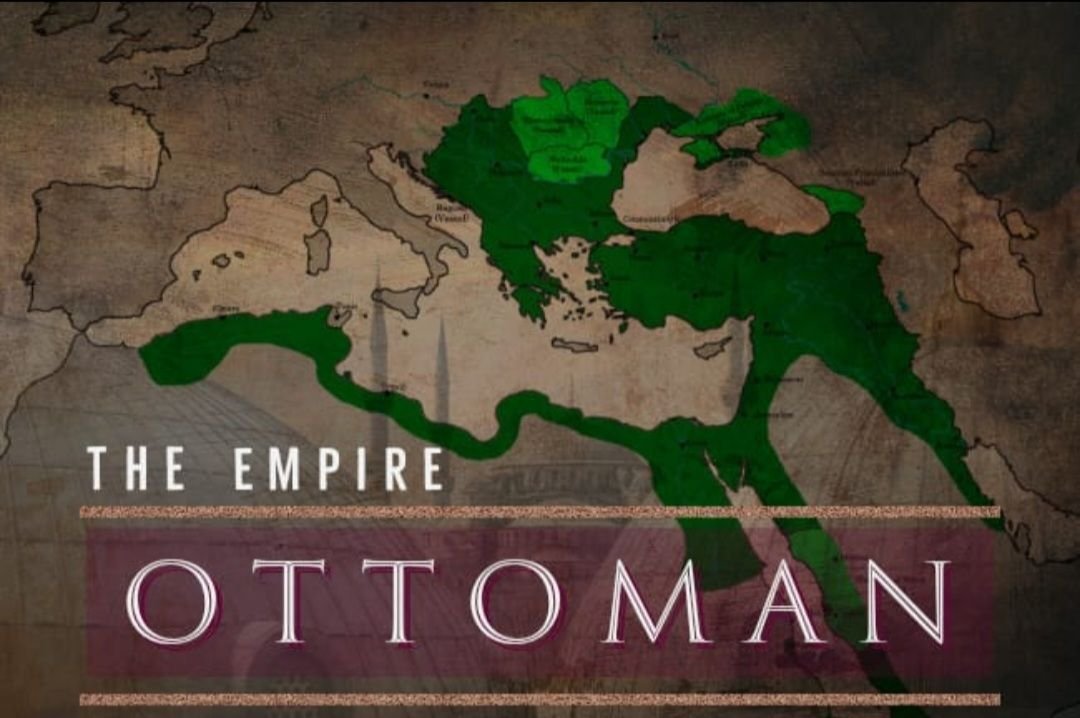In The Name of Allah, The Most Merciful, The Bestower of Mercy.
When the polytheists rejected the Qur’an and exerted every effort to invalidate it, they were simultaneously challenged to produce a text comparable to it, whether it be ten chapters or even a single chapter. This situation revealed to those with sound judgment that, despite their vigorous attempts and the formidable resources they utilized, they were incapable of countering it. Had they chosen to embrace rather than oppose and attempt to nullify it, their failure to challenge it— which served as evidence—would not have been so apparent.
When the magicians challenged Musa, peace be upon him, Allah rendered their displays ineffective, thereby revealing the truth of Musa’s message. This exemplifies a key difference between the signs of the Prophets, known as ‘True Miracles’, and the deceptive acts performed by magicians and devils. Allah has outlined several distinctions between these two phenomena. Allah said:
هَلۡ أُنَبِّئُكُمۡ عَلَىٰ مَن تَنَزَّلُ ٱلشَّيَـٰطِينُ
تَنَزَّلُ عَلَىٰ كُلِّ أَفَّاكٍ أَثِيمٍ۬
Shall I inform you (O people!) upon whom the Shayatin (devils) descend? They descend on every lying (one who tells lies), sinful person. [Al-Shu’ara 221-22]
Among the notable signs is that which Allah has elucidated in the verses that pose a challenge to the adversaries, as well as the signs bestowed upon the Prophets, peace and blessings of Allah be upon them. These signs cannot be contested or surpassed; furthermore, they cannot be rendered void. In contrast, the paranormal acts of magicians and devils can indeed be met with similar or even more powerful responses, and they can be nullified.
Similarly, when all the enemies of the Prophets – the devils amongst humankind and Jinn, who inspire one another with adorned speech by way of deception – manifest their proofs to prove the validity of their religions that are in opposition to the religion of the Messengers; deceive through what they fabricate of narrations and that which is presented as truth to be believed, then this becomes a means of manifesting the sound beliefs which Allaah has promised to give the upper hand over all other religions through clarification, clear proofs and evidences, and then through the sword, the hand and weaponry.
In a similar manner, when the adversaries of the Prophets—both the devils among humanity and the Jinn—who inspire one another with adorned speech through deception to validate their false religions that are in opposition to the religion of the Messengers, and create a facade of truth through their fabricated narratives, this, in turn, serves to highlight the authentic beliefs that Allah has assured will prevail over all other religions, supported by clear explanations, undeniable evidence, and then through force, whether by hand or weapon. [Footnote a]
Allah [The Exalted] said:
لَقَدۡ أَرۡسَلۡنَا رُسُلَنَا بِٱلۡبَيِّنَـٰتِ وَأَنزَلۡنَا مَعَهُمُ ٱلۡكِتَـٰبَ وَٱلۡمِيزَانَ لِيَقُومَ ٱلنَّاسُ بِٱلۡقِسۡطِۖ وَأَنزَلۡنَا ٱلۡحَدِيدَ فِيهِ بَأۡسٌ۬ شَدِيدٌ۬ وَمَنَـٰفِعُ لِلنَّاسِ وَلِيَعۡلَمَ ٱللَّهُ مَن يَنصُرُهُ ۥ وَرُسُلَهُ ۥ بِٱلۡغَيۡبِۚ إِنَّ ٱللَّهَ قَوِىٌّ عَزِيزٌ۬
Indeed We have sent Our Messengers with clear proofs, and revealed with them the Scripture and the Balance (justice) that mankind may keep up justice. And We brought forth iron wherein is mighty power (in matters of war), as well as many benefits for mankind, that Allah may test who it is that will help Him (His religion), and His Messengers in the unseen. Verily, Allah is All-Strong, All-Mighty. [Al-Hadid 25]
Thus, through the clear signs and evidence established by Allah, the truth is given superiority over falsehood; what is beneficial is given superiority over triviality; guidance over misguidance; truthfulness over that which cannot be substantiated; the path of righteousness over deviation; uprightness over corruption; and accuracy over error. This serves as a test for humanity, distinguishing the wicked from the virtuous. Allah, The Exalted, said:
مَّا كَانَ ٱللَّهُ لِيَذَرَ ٱلۡمُؤۡمِنِينَ عَلَىٰ مَآ أَنتُمۡ عَلَيۡهِ حَتَّىٰ يَمِيزَ ٱلۡخَبِيثَ مِنَ ٱلطَّيِّبِ
Allah will not leave the believers in the state in which you are now, until He distinguishes the wicked from the good. [Aal Imran. 179]
Allah, The Exalted, said:
الٓمٓ
أَحَسِبَ ٱلنَّاسُ أَن يُتۡرَكُوٓاْ أَن يَقُولُوٓاْ ءَامَنَّا وَهُمۡ لَا يُفۡتَنُونَ
وَلَقَدۡ فَتَنَّا ٱلَّذِينَ مِن قَبۡلِهِمۡۖ فَلَيَعۡلَمَنَّ ٱللَّهُ ٱلَّذِينَ صَدَقُواْ وَلَيَعۡلَمَنَّ ٱلۡكَـٰذِبِينَ
أَمۡ حَسِبَ ٱلَّذِينَ يَعۡمَلُونَ ٱلسَّيِّـَٔاتِ أَن يَسۡبِقُونَاۚ سَآءَ مَا يَحۡكُمُونَ
Alif-Laam-Meem. Do people think that they will be left alone because they say: “We believe,” and will not be tested. And We indeed tested those who were before them. And Allah will certainly make (it) known (the truth of) those who are true, and will certainly make (it) known (the falsehood of) those who are liars, (although Allah knows all that before putting them to test). Or those who do evil deeds think that they can outstrip Us (i.e. escape Our Punishment)? Evil is that which they judge! [Al-Ankabut. 1-4]
Fitna is a test, as Allah stated that Musa, peace be upon him, said:
إِنۡ هِىَ إِلَّا فِتۡنَتُكَ تُضِلُّ بِہَا مَن تَشَآءُ وَتَہۡدِى مَن تَشَآءُ
It is only Your Trial by which You lead astray whom You will, and keep guided whom You will. [Al-A’raf. 155]
Meaning, your trial and test through which those who oppose the Messengers are misguided and those who follow them are guided. Trial for a human being is like when gold is exposed to the bellows because it separates its good parts from its impurities, thus, truth is like pure gold and whenever it is put to trial, its quality increases. As for falsehood, it is like something adulterated and shrouded in mist, and whenever put to the test, its corruption manifests. So, whenever an observer examines the religion of truth, and whenever the arguer argues on its behalf, its proofs manifests, certainty is strengthened, the Iman of the believers is increased and its light shines in hearts of humankind and Jinn.
As for when an arguer argues on behalf of false religion and seeks to establish its crooked structure, Allah establishes those who fling the truth against the falsehood, thus, it destroys it, and it becomes manifest that the proponent of that false religion is an idiot, a liar, lost, dim-witted and unstable; corruption and repugnance is manifested from such a religion – the corrupt creed of incarnation, the corrupt creed that the creation are in union with the Creator, contradiction, heresy, disbelief, misguidance, ignorance, absurdity, as well as that which becomes manifest to all men in general that the proponents of false religions are the most misguided, and to the extent that corruption is manifested from such a religion regarding that which was unknown to the majority of men.
Through this affair, the one who was heedless and was in a state of slumber – the one who could neither differentiate between deviation and upright guidance, is awoken; and one is given guidance by way of sound knowledge and Iman, even though prior to that his heart was dead (with misguidance), due to being unaware of those who are well known (for piety, upright guidance etc)- those whom Allah bestow his grace, such as the Prophets, the truthful ones, the martyrs and the righteous; nor did he reject – prior to that – the evil of those who earned Allah’s Anger and those who went astray; for indeed Allah rebuked the Nasaaraa and the Yahud because they denied the truth that opposes evil desires, turned away from the truth and did not accept it due to pride, harboured envy against the people of truth and transgressed against them, followed the path of deviation, miserliness, cowardice and hard heartedness; described Allah with the deficiencies of the creation and their shortcomings, wilfully denied the Perfect Attributes which Allah described Himself with and are not possessed by anyone besides Him, which have no likeness to the creation; and likewise their exaggeration regarding the status of the Prophets and righteous people, and they ascribed partners to Allah – The Lord of the entire creation – in worship; and their belief in Hulool and Ittihaad [i.e. that Allah dwells in a particular person and that He is in union with the creation], which makes a created being the creator; and they abandoned the sound acts of worship that were from the path of the Prophets and Messengers, acted merely based on the desires of the heart- what it relishes and is passionately in love with; refrained from adhering to the knowledge which Allah has revealed in His manifest Book, took their elders, scholars and leading worshippers as Lords besides Allah by following them in that which they innovated in religion- in opposition to the path of the Prophets, as Allah stated:
تَّخَذُوٓاْ أَحۡبَارَهُمۡ وَرُهۡبَـٰنَهُمۡ أَرۡبَابً۬ا مِّن دُونِ ٱللَّهِ وَٱلۡمَسِيحَ ٱبۡنَ مَرۡيَمَ وَمَآ أُمِرُوٓاْ إِلَّا لِيَعۡبُدُوٓاْ إِلَـٰهً۬ا وَٲحِدً۬اۖ لَّآ إِلَـٰهَ إِلَّا هُوَۚ سُبۡحَـٰنَهُ ۥ عَمَّا يُشۡرِڪُونَ
They (Jews and Christians) took their rabbis and their monks to be their lords besides Allah (by obeying them in things which they made lawful or unlawful according to their own desires without being ordered by Allah), and (they also took as their Lord) Messiah, son of Maryam (Mary), while they (Jews and Christians) were commanded [in the Taurat (Torah) and the Injeel (Gospel)) to worship none but One Ilah (God – Allah) La ilaha illa Huwa (none has the right to be worshipped but He) . Praise and glory be to Him, (far above is He) from having the partners they associate (with Him).”
And they opposed that which was clearly reasonable and the clear narrations due to what they thought was divine revelation and revelations of the unseen, even though it is whispering of the cursed one [Iblees], until the one upon this path became similar to one about whom Allah stated: [وَقَالُواْ لَوۡ كُنَّا نَسۡمَعُ أَوۡ نَعۡقِلُ مَا كُنَّا فِىٓ أَصۡحَـٰبِ ٱلسَّعِيرِ – And they will say: “Had we but listened or used our intelligence, we would not have been among the dwellers of the blazing Fire!] [Al-Mulk. 10]
Allah said:
وَلَقَدۡ ذَرَأۡنَا لِجَهَنَّمَ ڪَثِيرً۬ا مِّنَ ٱلۡجِنِّ وَٱلۡإِنسِۖ لَهُمۡ قُلُوبٌ۬ لَّا يَفۡقَهُونَ بِہَا وَلَهُمۡ أَعۡيُنٌ۬ لَّا يُبۡصِرُونَ بِہَا وَلَهُمۡ ءَاذَانٌ۬ لَّا يَسۡمَعُونَ بِہَآۚ أُوْلَـٰٓٮِٕكَ كَٱلۡأَنۡعَـٰمِ بَلۡ هُمۡ أَضَلُّۚ
And surely, We have created many of the jinns and mankind for Hell. They have hearts wherewith they understand not, they have eyes wherewith they see not, and they have ears wherewith they hear not (the truth). They are like cattle, nay even more astray. [ Al-A’raf.179]
And their other innovations in religious matters and misguidance due to which Allah rebuked them, and it is from that which Allah has warned this Ummah and made it an admonition for those who have insight.
Indeed, the Prophet, peace and blessings of Allah be upon him, informed us that these deeds will occur amongst some of the Muslims, even though he also stated, “There will not cease to be a group amongst my Ummah who will be established upon the truth, neither will they be harmed by those who oppose them nor by those who forsake them until the hour is established”, and that his Ummah will not agree upon misguidance, and that they will not be completely overcome by other nations; rather this group will not cease to be manifest, aided and adhering to the path of their Prophet; but there will definitely be those in the Ummah who will follow the ways of the Yahud, the Nasaaraa, the Romans and fire worshippers, as it is reported in Al-Bukhari and Muslim from Abu Hurairah, may Allah be pleased with him, that the Prophet, peace and blessings of Allah be upon him, said, “You will follow the ways of those nations who were before you, span by span and cubit by cubit (i.e., inch by inch) so much so that even if they entered the hole of a mastigure, you would follow them”. They said, “O Allah’s Messenger! (Do you mean) the Jews and Christians?” He said, “Who else?” The Prophet said, “What happened to the nations will happen to my Ummah, span by span and cubit by cubit (i.e., inch by inch)”. They said, “O Allah’s Messenger! (Do you mean) the Persians and the Romans?” He said, “Who else other than those ones?”
And there are hypocrites in the midst of the Islamic Ummah and the hypocrites will be in lowest depths of the fire- below the Yahud and Nasaaraa. This is why one will find in the hypocrites that which earned the Yahud and Nasaaraa rebuke – those who manifest belief in everything brought by the Messenger while hiding the opposite of it in their hearts, such as the heretics and the Baatiniyyah, and even more so those amongst them who openly manifest their hearsay. And one will find this amongst some of the people of religious innovations- those who affirm the Messengership of the Prophet inwardly and outwardly, but they are confused by some of that which confused the Yahud and Nasaaraa, thus, they follow the doubtful matters and abandon that which is very clear.
An Excerpt from Al-Jawab As- sahih Liman Baddala Deen Al-Masih 1/20- 23
Footnote a: https://www.abukhadeejah.com/salafi-shaikh-fawzaan-on-jihaad-in-our-times-and-the-guidelines-of-jihaad-according-to-islam/














